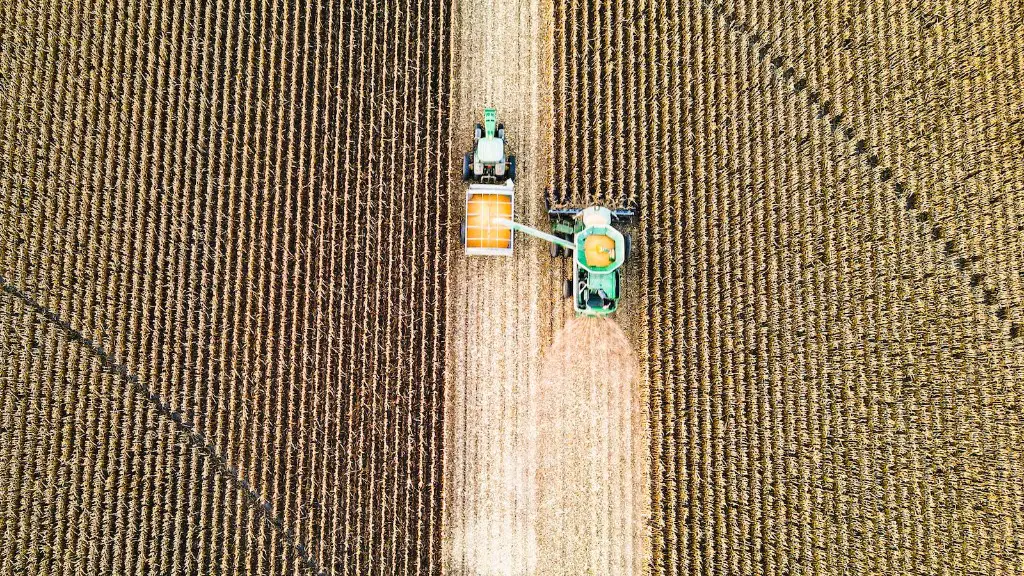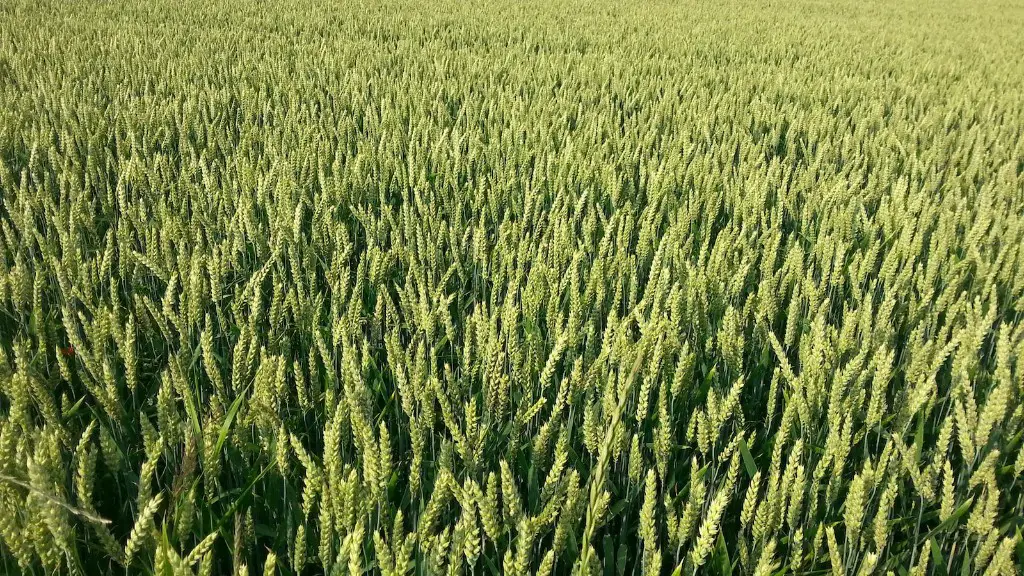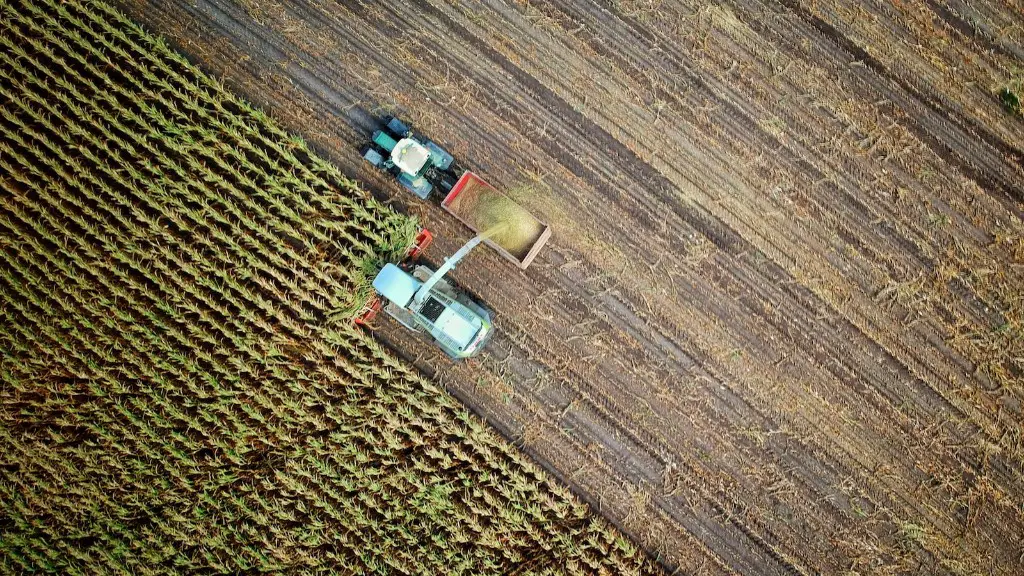Organic agriculture in the Philippines is the practice of using natural or organic materials to maintain the fertility of soil and keep its associated ecosystems healthy. In organic agriculture, special attention is given to what crops are planted, how they are grown, how they are protected from diseases, pests and weeds, and how sustainable agricultural practices are employed. Organic agriculture also relies heavily on crop rotation, cover cropping and integrating livestock into the production cycle.
Organic farming in the Philippines is undertaken by small-scale and subsistence farmers who employ sustainable agricultural practices to support their families and earn their sourced of income. The main focus of these farming practices is on finding the best way for farmers to nurture the soil and ensure food safety, reduce environmental damage, maintain the balance of local ecosystems and optimize the incomes of small-scale and subsistence farmers. Organic systems are also community-based initiatives, with organizations, local and international Non-Governmental Organizations, and government organizations promoting, supporting and encouraging the practice of organic agriculture among Filipino farmers.
Organic farming in the Philippines requires the integration of environmental and socio-economic considerations with production and productivity, recognizing the direct and indirect benefits of sustainable farming practices. In some areas, farmers have adopted and utilized the so-called agro-ecological farming which utilizes natural materials, appropriate technology and indigenous knowledge in an integrated way, allowing farmers to address issues such as climate change, while still having access to the markets.
Organic farming in the Philippines relies heavily on the use of organic inputs, such as compost, green manures, mulches, trap crops, plant and animal waste, and other organic materials. These organic inputs play an important role in increasing the fertility of the soil, controlling weeds, and improving the resistance of the crops to pest and disease. At the same time, organic materials are used to help reduce environmental pollution and improve the capacity of the soil to store water. Organic inputs also help to enhance the capacity of the soil to store carbon, which can result in positive impacts on the global climate.
In addition to the use of organic inputs, organic farming in the Philippines involves the manipulation of biodiversity, crop rotations, alternating plans and intercropping, and a range of integrated pest management methods. These and other integrated management strategies are intended to ensure that the soil is not only fertile and non-toxic, but also that the natural habitat of animals, insects, and other organisms is not damaged or threatened. In addition, organic farming also strives to promote sound agricultural practices that support both sustainable agriculture and the socio-economic development of the community.
Benefits of Organic Agriculture in the Philippines
Organic agriculture is beneficial to the Philippines in many ways. First, it improves soil health by increasing the fertility of the soil with natural inputs such as compost, green manures, mulches and plant and animal waste. This increases crop yields, reduces the need for synthetic chemical inputs, reduces production costs and has a positive environmental impact. In addition, it provides a healthy and nutritious food source and reduces the risk of food-borne diseases, as certified organic products are free from synthetic chemicals and contaminants.
Second, organic agriculture supports sustainable rural development. It helps to ensure food security for smallholder farmers by providing a sustainable way to earn an income, promote resource stewardship by protecting biodiversity and encourages the preservation of cultural heritage related to farming. In addition, organic agriculture supports local economies by providing employment opportunities and reducing dependence on imported food products.
Third, organic farming has an overall positive impact on the environment by reducing pesticide and fertilizer use and preserving the fertility of soils. It also helps to reduce soil erosion through crop rotations, cover crops and integrated pest management methods. Furthermore, organic farming promotes biodiversity and protects wildlife habitats, and is one of the most effective ways to mitigate climate change.
Organic Certification Process in the Philippines
The Philippine government recognizes the importance of organic agriculture and has developed a certification program that guarantees that organic products are safe and healthy. This certification process includes a set of standards that organic farmers are required to follow in order to be certified. The National Organic Program of the Department of Agriculture is responsible for the certification process, and a certification authority is appointed for each organic production area. The certification authority is responsible for monitoring and evaluating the organic practices of the farms and validating their compliance with the standards.
The certification process begins with an inspection of the farm to ensure that it meets the standards set by the program. The process also includes the evaluation of the production records of the farm and the testing of soil and water samples to confirm the use of organic inputs. After the inspection, a decision is made on the certification status of the farm, after which a letter of certification is issued to the farm. This certification serves as proof that a farm is legitimately practicing organic agriculture.
Challenges of Organic Agriculture in the Philippines
Organic agriculture in the Philippines faces certain challenges, including the lack of access to specialist advice, technology and finance. Smallholder farmers have limited access to the necessary educational materials and technology required to produce organic produce, and are also constrained by limited resources and scarce financial capital. Furthermore, access to the organic markets is often difficult due to the long certification process and limited marketing activities. Additionally, organic farmers are still vulnerable to pest and disease outbreaks, weather conditions and market fluctuations.
Another significant challenge is the lack of support and incentives for organic agriculture. The Philippines has not promulgated any laws or regulations that explicitly incentivize or promote organic agriculture. The government has also failed to provide any incentives or subsidies to organic farmers, making it difficult for them to compete in the market. Furthermore, there is a lack of effective implementation of the existing organic policies due to inadequate knowledge, resources, and implementation capacity.
Organic Agriculture Promotion and Marketing in the Philippines
Organic agriculture promotion and marketing in the Philippines is essential for the growth and sustainability of the sector. To this end, the government and other stakeholders have developed several strategies and initiatives to promote organic agriculture. These include government-sponsored information campaigns, the establishment of organic communities and networks, the integration of organic agriculture research initiatives into agricultural education and training, the award of recognition to high-performing organic farmers, and direct market promotion and expansion initiatives.
The government has also taken several measures to support the development of organic markets, such as providing technical assistance, funding, and research and development to support the growth of organic markets. The Department of Agriculture also implemented a national program to facilitate the access of small-scale farmers to the organic market. This program has helped to increase the number of certified organic farms in the country, as well as encouraging farmers to adopt sustainable farming practices.
In addition, the Philippine government has formulated policy initiatives to provide technical and financial assistance to organic farmers. This includes providing subsidies and access to government-funded grants and loans, providing access to research and development funds, supporting farm cooperatives and farmer-managed organizations, and providing assistance to organic farmers in marketing and promoting their products.
Organic Farming Cooperatives in the Philippines
Organic farming cooperatives in the Philippines are instrumental in helping small-scale and subsistence farmers produce and sell their products in the organic market. Cooperatives are collective organizations based on the spirit of self-help and mutual aid, which helps to ensure their members benefit from more equitable income opportunities and reduced risks. In the Philippines, several organic cooperatives are established to provide technical and marketing assistance to organic farmers and to facilitate access to the organic market.
These cooperatives are also responsible for linking farmers with processors, certifiers, traders, retailers and other stakeholders in the organic sector. They can also help farmers to gain access to credit and input services, as well as access to research and training services. In addition, the cooperatives can help to increase the sustainability of organic farming operations by promoting crop diversification and the adoption of environmentally-friendly practices.
Organic farming cooperatives in the Philippines also help to strengthen the competitiveness of their members. They facilitate the collective marketing of their members’ products, ensuring that their members receive a fair price for their produce and reducing the risks associated with marketing their products. Furthermore, the cooperatives also help to ensure a smooth transition from conventional to organic farming practices by providing access to training and technical advice.
Conclusion
Organic agriculture is of growing importance in the Philippines, providing farmers the opportunity to earn a sustainable income and support the preservation of ecosystems. It is beneficial to the Philippines in many ways, including improved soil health, increased biodiversity, improved food security for smallholder farmers and reduced environmental impacts. The government of the Philippines has recognized the importance of organic agriculture and has implemented laws, standards and certification programs to support and promote organic agriculture in the country. In addition, organic farming cooperatives are instrumental in helping small-scale and subsistence farmers in the Philippines to access the organic market and increase their competitiveness.




